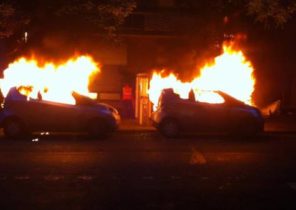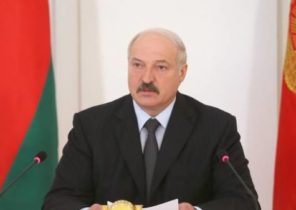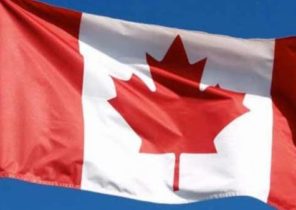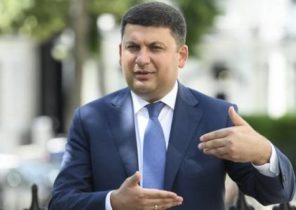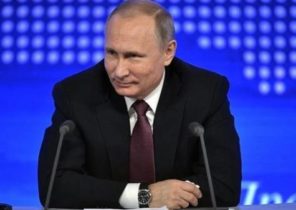
Today it looks as if in relation to Russia there is only one position: to reject and to criticize.
But if you give yourself the better work to delve into the issue and read not only the anti-Russian media, you can discover many new aspects. Unfortunately, it requires a lot from every single person, because the media — and this is proven by the Institute of journalism in 2016 — in relation to Russia is very one-sided and tend to her demonization. “Russia is described in the bipolar perspective of the cold war. There is every indication that Putin is being demonized” — a conclusion the conducted analysis!
If you do something to find a more balanced news, you will find that the attitude towards Russia in connection with crisis in Ukraine and Crimea.
But if you own enough energy to read a lot of materials, you can be satisfied with a short article by Goetz Elias (Elias Götz), which gives a great overview of the interpretations available in the literature and the debate about Russia.
The first interpretation is this: Russia is an aggressive and driven by Imperial ambitions. Thus, Russia poses a great danger to us in the West, because its purpose is to restore the Empire that existed in Soviet times. Therefore, the most rational policy for the West is containment.
Proponents of the second viewpoint are defending Russia, driven by concern for the safety and self-respect. According to this interpretation, Russia is not too dangerous, because Russia is just trying to balance the attacks from the West. In this regard, the best policy of the West towards Russia would be to try to cooperate with it.
The third interpretation is that Russia is a destructive force because of the conflicts of interests inside the country. Country driven selfish interests of the ruling elite. Russia is relatively dangerous for the world, because he’s trying to divert attention from their failures in domestic policy, and stop the democratic “contagion” in nearby countries in the form of revolutions, such as Ukraine in 2014. Therefore, the best policy of the West will be carefully balanced mix of deterrence and attention.
Elias Goetz: Three competing points of view. November 2016
What motivates Russia, engaged in self-affirmation?
An Aggressive Russia
Imperial ambitions.
Russia defending
Concern for the safety and self-respect.
Destructive Russia
The selfish interests of the ruling elite.
How dangerous is Russia?
An Aggressive Russia
Very dangerous. Russia is trying to recreate the Empire in the borders of the Soviet space.
Russia defending
Not especially dangerous. Russia is trying to balance the attacks from the West.
Destructive Russia
Relatively dangerous: the country is trying to divert attention from their failures in domestic policy, and to hinder the democratic contagion in nearby countries.
What policy should the West?
An Aggressive Russia
Containment (containment)
Russia defending
Try to cooperate (engagement)
Destructive Russia
The mixture of containment and engagement (constrainment)
From this enumeration of the positions in relation to Russia should be that the media and the speeches of politicians today is dominated by first and third. The second — which sees Russia as a country defending — rarely mentioned. But if it is mentioned, often as the position is not particularly intelligent and quite treacherous. But if we turn to serious literature, the impression goes hardly.
If you look at the arguments used by proponents of these three different points of view, they all have their strengths and weaknesses. Weaknesses, according to the Elias Goetz, are as follows:
Possible objections to the arguments of the proponents of the three perspectives on Russia:
An Aggressive Russia
Why Moscow has provided the Eastern Ukraine limited support?
Why Moscow did not support or did not create separatist groups in other places?
Why Russia has not gone to the breakaway republics in Moldova and Georgia, who wanted to become part of Russia?
Why do the proponents of neo-Imperial Eurasian ideology pushed by the wayside in relations with the Kremlin?
Why Moscow dismissed the most radical leaders of the separatists in Ukraine?
Russia defending
Does it make sense to call the annexation of the Crimea defensive reaction?
To expect that Ukraine will become a NATO member, was unrealistic.
Destructive Russia
You need to Putin the external crisis in order to become more popular, if it is already very popular?
How democracy could spread in Ukraine, where a huge difficulties with the transition to democracy?
The most active critics of Putin’s Russia — not the Democrats. If it falls, after it is unlikely to be democracy on the Western model.
The Russian elite has no economic interests in Ukraine. It is much better to earn in Russia.
You can add even more weaknesses, and, of course, a number of strong to each interpretation. However, I’m not going to do that. I would just like to thank Elias Goetz for his article with a great overview and to Express the hope that those who read this, will feel desire to read further. Danish newspaper to read is pointless. We must try to look for news and analysis on the Internet and in the library. And the article Elias Goetz can be a wonderful beginning!

